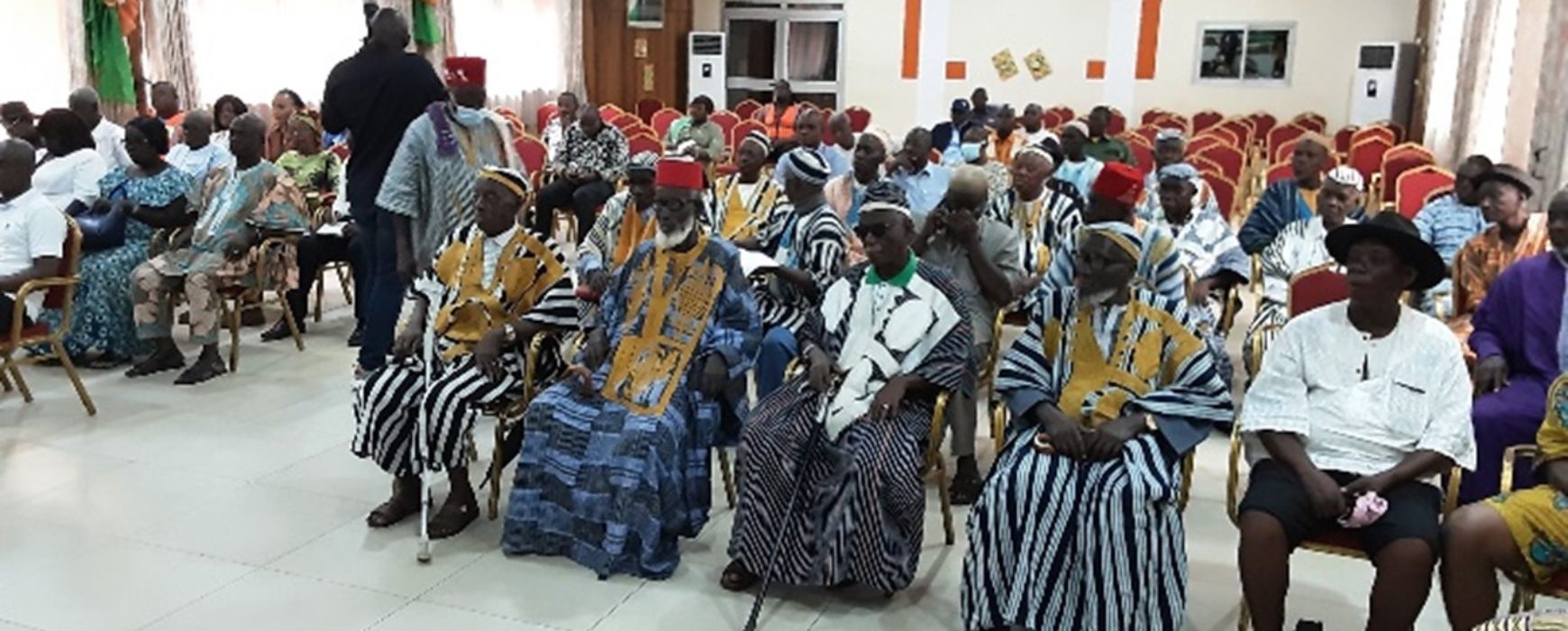As a prelude to the start of the surveys, information sessions were organised in the three communes of zone 2, namely Plateau, Adjamé and Attécoubé. These information sessions took two forms: contact meetings and information meetings.
Under the aegis of the Directorate of Addressing, Management and Urban Restructuring (Direction de l’Adressage, de la Gestion et de la Restructuration Urbaine -DAGERU), contact meetings with the municipal authorities of Plateau, Adjamé and Attécoubé were held on 17, 18 and 19 May in their respective premises. These meetings served as a framework for presenting the issues, objectives and goals of the addressing project, as well as the sequencing of the activities planned in each commune. The exchanges enabled the project team to learn about the existing organisational arrangements in each commune (Neighbourhood Development Committee / Comité de Développement de Quartier – CDQ) and, in addition, the Citizen’s Advisory Committee for the Plateau / Comité Consultatif Citoyen -CCC).
Information meetings for citizens followed these contact meetings. They were attended by local resource persons, notably representatives of the CDQs, young people, women, customary and community leaders, who can serve as relays for the dissemination of information on the project. The main objective of these meetings is to provide accurate information on the PADA project in order to promote ownership and acceptance of the addressing operations by the local populations.
These meetings gave rise to many questions concerning, for example, the recruitment of PADA operators, or the absence of prior information missions to the traditional chiefs of the original villages. Some participants also wanted to know the link between door numbering and tax payment, or whether the unallocated neighbourhoods would be affected by the addressing system.
The PADA team provided some answers and focused on the communities making up the original nuclei of the communes of Adjamé (chief of Adjamé-village) and Attécoubé (Ebrié community). Thus, specific information visits are planned in order to solicit their support and facilitate the implementation of field activities.
About PADA: The Abidjan District Addressing Project (PADA) is part of the operationalization of street and gate addressing in the District of Abidjan as well as the establishment of a unique autonomous addressing reference system in Abidjan. Once implemented, the project will facilitate rapid localization in case of emergency intervention by the gendarmerie or the fire department, for example, and will allow for the modernization of postal services and better localization in the city during travel.
PADA is an MCLU project funded by the World Bank through PACOGA. It is operated by the BNETD accompanied by an international technical assistance composed of IGN FI / GEOFIT / Défis et Stratégies.

